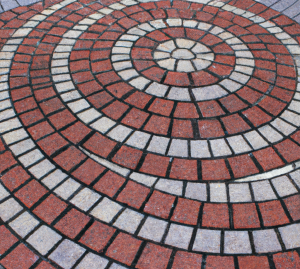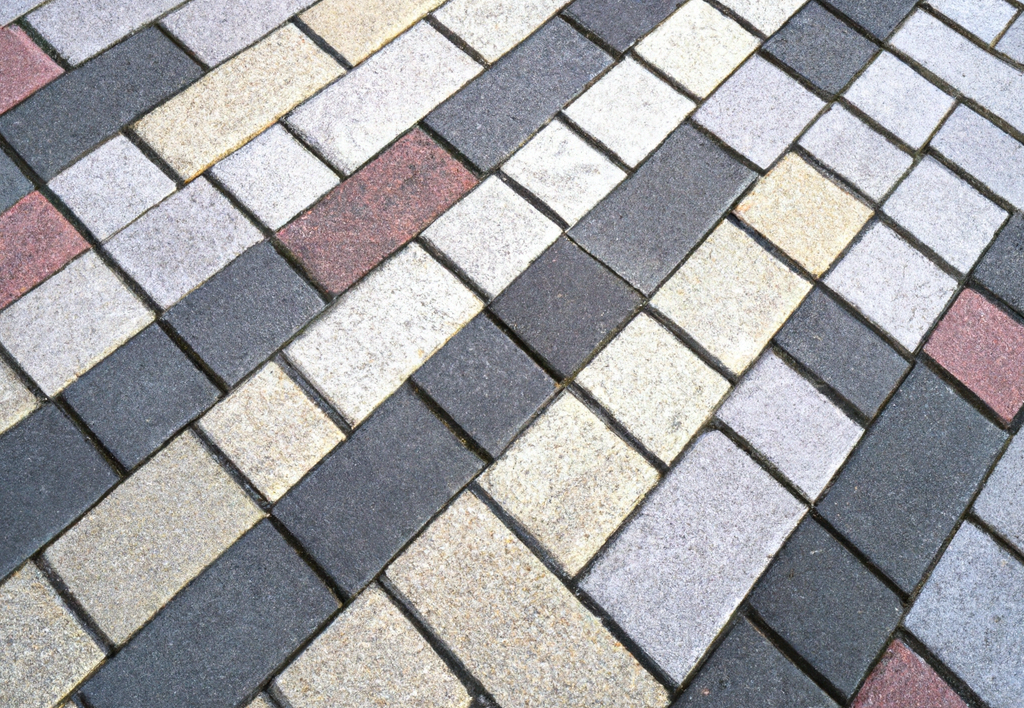What is the best pattern for block paving?
The most recommended pattern for block paving is the herringbone design. This interlocking pattern ensures the blocks stay aligned even under heavy loads, making it ideal for driveways.
Not only does it offer practical benefits, but it also adds a touch of elegance with its eye-catching chevron-like appearance, sure to impress neighbours and onlookers.
In addition to herringbone, other traditional patterns include the basket weave and pinwheel designs.
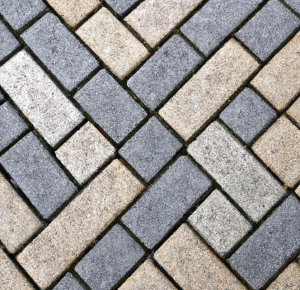
However, the herringbone set at a 45-degree angle to the garage is considered the strongest and most traditional option, especially for high-traffic areas, as it provides superior interlock to prevent shifting.
For those seeking a more contemporary look, the ashlar pattern is gaining popularity and works well for both residential and heavier traffic areas.
While a running bond or basketweave pattern can be suitable for standard residential driveways, it is advised to avoid these designs for heavier traffic areas like commercial driveways or subdivision common areas, as they are more prone to shifting.
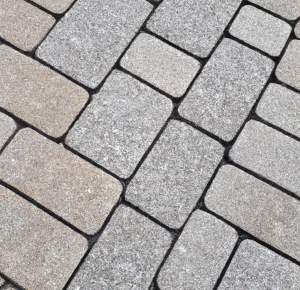
For permeable paver installations, it is best to opt for the ashlar or herringbone patterns due to their larger joints, which reduce the risk of shifting compared to running bond or basketweave patterns.
Alternatively, the stretcher bond pattern, resembling brickwork, is a widely used and popular choice among homeowners.
It offers a clean and uniform appearance, is easy for contractors to lay, and is considered eco-friendly due to minimal cutting and waste.
What do you put down before block paving?
Before laying block paving, it’s essential to prepare the groundwork properly. This involves using the right tools and materials.
You’ll need a broom, rake, string line with pegs, screed rails, shovel or spade, spirit level, tape measure, mallet, and a wheelbarrow.
Additionally, you’ll require a cement mixer, compacting tool, and either a stone saw or block splitter, which can usually be rented from a hire shop.
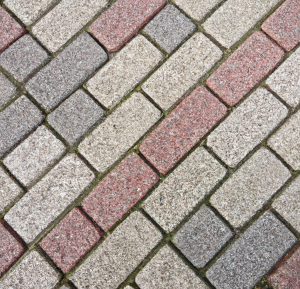
As for materials, you’ll need sub-base aggregate, sand, and the block paving stones themselves. Planning ahead and ensuring you have all the necessary materials before starting the project is crucial for a smooth and efficient paving process.
Regarding calculating the number of block pavers needed per square meter, you can determine this by measuring the area you intend to pave and the size of the chosen paving slabs or bricks.
The quantity will vary depending on the specific product you select for your path or driveway.
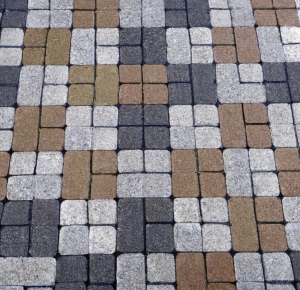
For the best results, it’s recommended to use kiln-dried sand for block paving joints. This type of sand is finely dried in a kiln to remove all moisture, making it ideal for filling the gaps between the paving stones.
Before commencing the actual block paving work, creating a simple sketch or map of your home or garden can help you plan the dimensions of your path or driveway and identify the necessary materials to order.
In summary, the process of laying block paving involves meticulous planning, proper groundwork preparation, and using the appropriate tools and materials. With careful consideration and attention to detail, you can achieve a beautiful and durable block paving installation for your home or garden.
What can I use instead of block paving UK?
If you’re seeking alternatives to block paving in the UK for your residential or commercial projects, there are several options to consider:
Resin Bound Gravel: This option involves a blend of UV stabilized resin adhesive and loose gravel, creating a durable and visually appealing surface suitable for pathways, patios, or driveways.
Timber Decking: An excellent choice for outdoor seating areas and walkways, timber decking provides numerous design possibilities and a natural-looking material.
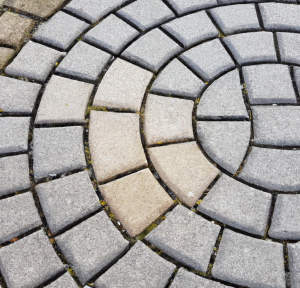
Composite Decking: Made from a combination of plastics and wood fibers, composite decking offers a low-maintenance alternative that resembles traditional wood decking.
Tarmac: Considered cost-effective and long-lasting, tarmac is suitable for heavy traffic surfaces such as driveways and parking areas.
Bark Chippings: A simple and swift option, bark chippings create a natural-looking pathway surface that works well in garden areas.
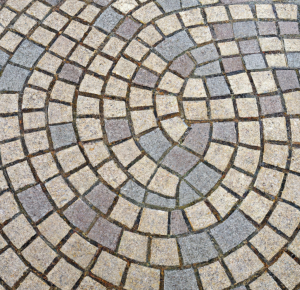
Artificial Grass: Offering mud-free and low-maintenance alternatives, artificial grass provides a realistic appearance similar to real grass for outdoor spaces.
Shallow Base Paving: This method involves placing concrete or edgeless slabs on top of a shallow sand base, making it suitable for patios and areas with light usage.
Each of these alternatives comes with its own set of advantages and considerations.
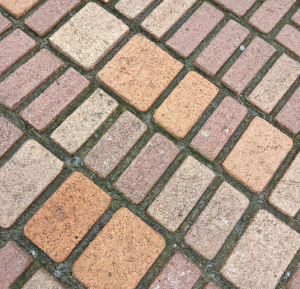
For driveways and high-traffic areas, resin bound gravel and tarmac are practical choices, while timber and composite decking offer versatility in design.
Bark chippings offer a cost-effective and natural look, while artificial grass presents a hassle-free green surface.
Depending on your specific requirements, budget, and desired aesthetics, you can select the most suitable alternative to block paving for your project.
Is block paving a good idea?
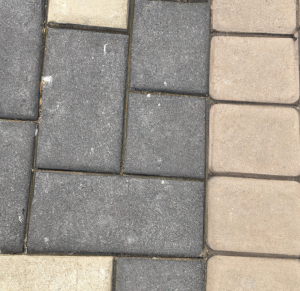
Block paving proves to be an excellent choice for surfacing due to its numerous advantages, making it a visually appealing and functional option for patios and driveways.
The material’s versatility allows for customization, with various styles, colors, and shapes available to suit individual preferences.
Moreover, block paving is environmentally sustainable, as its porous nature enables rainwater absorption, providing better drainage for the surface area.

One significant benefit of block paving is its low maintenance requirements. Cleaning with soap and water is all that’s needed to keep it looking fresh and well-maintained.
Additionally, block paving exhibits remarkable durability, capable of withstanding heavy pressure, including the weight of airplanes at airports.
It is highly resistant to chemicals, oils, salts, and frost, ensuring a long-lasting and resilient surface.
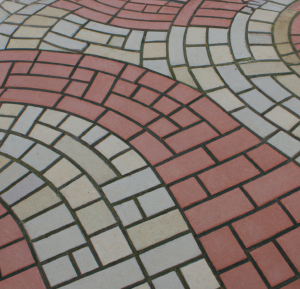
The visual appeal of block paving is undeniable, and the diverse design options can enhance the overall look of a property.
Whether opting for a simplistic or intricate pattern, block paving adds value to a home, making it an attractive feature for potential buyers in the future.
In conclusion, block paving proves to be an excellent surface solution, offering a range of benefits that outweigh its initial cost. With its ability to add value, improve aesthetics, and provide a durable and low-maintenance surface, block paving stands as a reliable and appealing choice for both residential and commercial properties.
How much does block paving cost per m2?
The cost of block paving per square meter can vary depending on the area to be paved and the region where the work is being carried out.
On average, for areas below 40m2, the cost can be around £100 per square meter including VAT.
For areas between 40 to 100m2, the cost may be approximately £90 per square meter, and for areas over 100m2, the cost could be around £75 per square meter.

To give an estimate of the overall cost for laying a 50m2 block paving driveway, it can range from £3,500 in the least expensive regions to about £5,000 in the most costly areas.
This price includes both material and labour costs. Additionally, the cost can be influenced by factors such as the complexity of the design, any additional features like steps or drainage, and the expertise and reputation of the professional installer.
For a 50m2 driveway, the material requirements typically include waste skips for excavated soil, hardcore for the base, block pavers, edgings, kiln-dried sand for joint filling, and weed membrane.
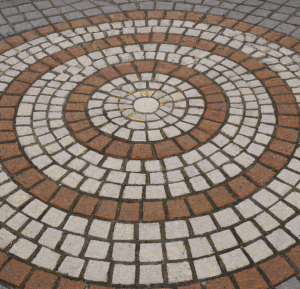
The total material cost for a 50m2 driveway can be around £2,500, which when combined with the labour cost, results in an overall estimated price of about £4,900.
It’s important to note that these costs are estimates and can vary based on individual circumstances and project requirements.
Consulting with a reputable professional for a detailed quote and assessment of your specific project is recommended to get an accurate cost for block paving per square meter.
How long does block paving last?
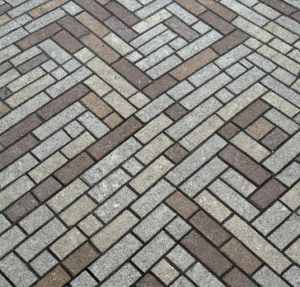
When block paving driveways are properly installed with a well-prepared base, they boast an impressive lifespan of approximately 25 years.
This longevity is one of the key factors contributing to the widespread popularity of block paving as a surfacing option.
Compared to newer surfaces like resin, block paving has proven its resilience over time, standing as a durable and reliable choice.
